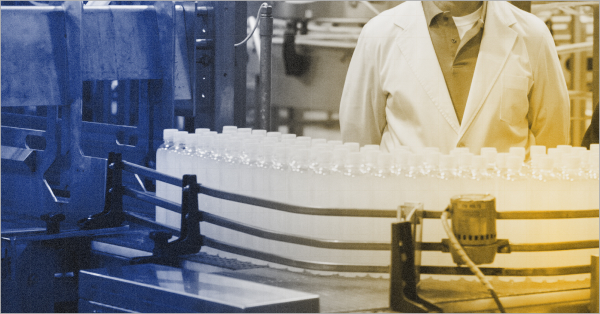Running a factory in India is no small feat. Every day, you navigate risks—from equipment breakdowns to fires, theft, and employee safety concerns. Without proper protection, these challenges can cripple your operations and lead to significant financial loss.
Here’s the good news! Factory Insurance offers a comprehensive safety net tailored for manufacturing businesses. This form of property insurance ensures that unforeseen events don’t derail your progress, safeguarding both assets and peace of mind. In this post, we will explore the essentials of Factory Insurance in India—what it covers, why it’s crucial, and how to choose the best plan for your business. Stay tuned to secure the future of your factory!
Factory Insurance: A Brief Overview
Factory Insurance is a specialised insurance policy designed to protect factories and manufacturing units from a variety of risks. This insurance offers comprehensive coverage against damages to the building, machinery, stock, and even liability claims arising from accidents or injuries within the premises.
Unlike general business insurance, factory and warehouse insurance is tailored to the specific needs of manufacturing setups, addressing risks unique to production environments. This insurance ensures that your factory remains operational even in the face of unexpected adversities, helping you recover quickly and minimise losses. Factory Insurance not only provides financial compensation but also supports business continuity by mitigating risks that can derail your operations.
Types of Coverage in Factory Insurance
Factory and warehouse insurance policies in India typically provide a range of coverages to address diverse risks. Here are the key types:
a) Property Damage Coverage
This includes protection for the factory building, machinery, tools, and other assets against damage caused by fire, natural disasters, or accidents. This property insurance ensures the business can recover physical assets without significant financial strain.
b) Employee Injury Coverage
This insurance covers compensation or benefits for medical expenses if employees are injured while working. Coverage typically includes policies such as Workers’ Compensation or policies aligned with the Employees’ State Insurance Act, especially in industries with higher risks.
c) Liability Coverage
This property insurance protects the factory owner from third-party claims arising from property damage or injury caused by factory operations. For example, if a neighbouring property is affected by a fire originating in the factory, this coverage will handle the compensation.
d) Business Interruption Coverage
Compensates for loss of income due to production halts caused by insured events like fire or machinery breakdown. Thus, this risk insurance policy ensures operational stability even during periods of downtime.
e) Specialised Coverage Options
Some insurers offer coverage for specific risks, such as pollution liability or terrorism coverage, as add-ons depending on the factory’s industry and operations.
Key Inclusions and Exclusions in Factory Insurance Policies
Understanding what is excluded and covered under Factory Insurance is critical to avoid surprises during claims.
A. Common Inclusions:
- Fire, explosions, and lightning are covered under Factory Insurance
- Natural disasters like earthquakes, floods, or storms
- Theft, burglary, or vandalism
- Accidental machinery breakdown may be included as an add-on or rider under the Factory Insurance Policy. Always confirm with the insurer whether this is part of your policy.
- Coverage for stock, raw materials, and finished goods
- Third-party liability arising from factory operations
B. Typical Exclusions:
- Damage due to regular wear and tear or poor maintenance
- Losses arising from intentional acts or negligence are not covered under Factory Insurance policies
- War, nuclear risks, or terrorism (unless specifically included)
- Consequential losses beyond the insured amount are not covered under Factory Insurance
- Failure to comply with safety regulations or legal requirements may lead to the policy being voided or claims being denied
It is crucial to thoroughly review the insurance policy document and clarify ambiguities with the insurer to ensure complete understanding.
Why is Factory Insurance Important in India?
a) Managing Common Risks Faced by Factories
Factories in India operate in an environment prone to several risks, including:
- Fire and Explosions: Caused by machinery malfunction, electrical faults, or human error, fires can result in massive destruction.
- Theft or Vandalism: High-value equipment and raw materials make factories attractive targets for theft or damage.
- Natural Disasters: Floods, earthquakes, and cyclones are common in various parts of India, posing a significant threat to factories.
- Machinery Breakdown: Even minor equipment failures can halt production, leading to financial and reputational losses.
- Employee Accidents: Industrial environments can expose workers to injuries, leading to medical expenses and compensation claims.
b) Complying with Legal and Regulatory Requirements
Indian laws like the Factories Act, 1948 and the Employees’ State Insurance Act, 1948 mandate safety measures and compensation for workplace accidents for factories with 10 or more workers (or 20 if power is not used). These regulations can be supplemented by a comprehensive Factory Insurance Policy. Compliance with these regulations not only avoids penalties but also builds trust among stakeholders.
c) Financial Protection
Without adequate insurance, factory owners bear the full burden of repair, replacement, and compensation costs. Factory Insurance ensures these expenses are covered, enabling the business to recover quickly without depleting its financial resources.
d) Enhancing Business Stability
A factory with risk insurance demonstrates financial prudence and risk management, which can attract investors and business partners.
How to Choose the Right Factory and Warehouse Insurance in India
Selecting the best insurance policy requires a strategic approach. Here are some key steps:
a) Assess Your Business Risks
Start by identifying potential risks unique to your factory. For instance, a chemical manufacturing unit may require higher coverage for fire and explosions compared to a textile factory. Assessing risks ensures you choose a property insurance policy that addresses your specific vulnerabilities.
b) Compare Factory Risk Insurance Policies
Don’t settle for the first policy you come across. Compare offerings from multiple insurers to find one that aligns with your needs and budget. Consider factors like premium rates, coverage options, claim settlement processes, and additional benefits.
c) Consult a Reliable Insurance Advisor
Consult an experienced insurance advisor familiar with commercial and industrial insurance to ensure you choose the right policy for your factory. They can help you understand policy details, negotiate terms, and ensure you are adequately covered.
d) Opt for Customisation
Many insurers offer customisable property insurance policies where you can add riders or tailor coverage to suit your factory’s specific requirements. Examples include business interruption add-ons, terrorism coverage, or extended liability protection.
e) Check the Insurer’s Reputation
Research the insurer’s claim settlement ratio, customer reviews, and industry reputation to ensure reliable service.
What Determines the Cost of Factory Insurance in India?
The premium for factory and warehouse insurance depends on various factors, including:
a) Size and Nature of the Factory
Larger factories or those involved in high-risk activities like chemical production may attract higher premiums.
b) Location
Factories located in areas prone to natural disasters or theft may face higher factory and warehouse insurance costs.
c) Coverage Options
The extent of risk insurance coverage, including add-ons like terrorism cover or business interruption, impacts the premium.
d) Claim History
Factories with a history of frequent claims may face higher premiums, while businesses with a clean claims history might benefit from discounts or better terms.
Tips to Optimise Costs:
- Opt for a higher deductible to lower your premium.
- Bundle Factory Insurance with other business policies for discounts.
- Implement robust safety measures to reduce risk and negotiate better premiums.
The Bottom Line:
Factory Insurance is not just an expense; it’s an essential investment in your factory’s security. By choosing a policy tailored to your factory’s unique risks, you ensure your business remains resilient in the face of unforeseen events. With the right coverage, you can protect your assets, employees, and reputation, allowing your factory to thrive. Take the first step today to safeguard the future of your factory and achieve long-term success.








